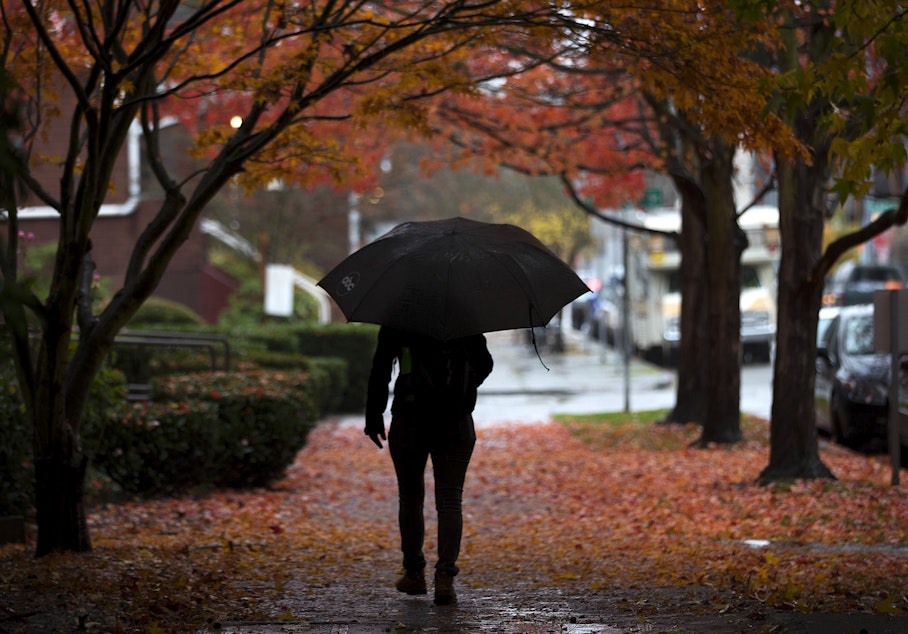Daylight saving movement gets nudge from Canada

The movement to “ditch the switch” — the twice-yearly ritual of changing our clocks between daylight and standard time — just got a gentle push from British Columbia, where residents signaled they are keen to join Washington state and Oregon on permanent daylight saving time.
But in California, where the idea is popular too, a new snag cropped up.
More than 223,000 British Columbians responded to a government survey on whether to adopt daylight saving time all year-round. The voluntary online survey broke provincial records for the most responses. In a tally of the results released Tuesday, 93 percent said they want to quit the biannual practice of springing forward and falling back.
"The people of British Columbia have spoken and their collective voice has come through loudly and clearly,” B.C. Premier John Horgan said in a statement.
As he has before, Horgan indicated he wants the observance of time on Canada's west coast to stay in alignment with the U.S. West Coast states. Earlier this year, the Oregon and Washington legislatures both voted by wide margins to adopt permanent daylight saving time. Oregon lawmakers also declared their intention to move only in concert with their neighbors.
There's a hiccup in California though, where the state legislature punted the issue to next year's session. Californians wound this watch up last November when 60 percent of voters backed Proposition 7. That paved the way for the California Assembly to vote unanimously in May to make daylight time permanent.
Sponsored
But the implementing measure stalled in the California Senate this summer. Assemblymember Kansen Chu, the prime sponsor, pulled the legislation back this week.
"I want to clarify that (the bill) is not dead and will be moving forward in January," Chu tweeted. "I want to take the next few months to ask my constituents their thoughts on permanent daylight saving time versus permanent standard time."
Another potentially bigger snag for the west-wide movement comes from the U.S. Congress, which can't seem to find the time to deal with requests from states for permission to go to year-round daylight saving time. Congress needs to get involved because while states can adopt year-round standard time, the federal Uniform Time Act does not currently allow for year-round daylight saving time.
Oregon Senator Ron Wyden and Washington's Patty Murray have signed on as co-sponsors to a Florida senator's bill to make daylight saving time permanent nationwide in one fell swoop in every state that observes it.
A separate U.S. House measure introduced in March by Utah Congressman Rob Bishop would simply give states the option to observe daylight saving time year-round. Neither measure has been scheduled for a committee hearing at this time.
Sponsored
Sticking with daylight saving time year-round would give people an extra hour of daylight on winter evenings. The sun would rise later during winter mornings than under the current observance of standard time between November and mid-March.
In British Columbia, people who participated in the government consultation frequently expressed the opinion that the biannual time change no longer makes sense and is a hassle. Another rationale expressed in the survey frequently was that eliminating the time switch and thus extending sunlight hours on winter afternoons would contribute to better health and wellness.
The desire to move to permanent DST was consistently high across the province and across occupations and demographic groups. However, a handful of industry groups sent formal letters pleading to maintain the status quo. The ski resort and golf sectors told Horgan they would be negatively impacted by later sunrises in winter if daylight saving time were observed year-round.
"As a rule, most skiers desire to get out on the mountain first thing in the morning and a move to Daylight Saving Time in the winter would shift this ski culture," said Christopher Nicolson, CEO of the Canada West Ski Areas Association. "Retail and food and beverage revenues may also be impacted as activities are squeezed into a smaller window at the end of the day."
Two states — Arizona and Hawaii — and the territory of Puerto Rico long ago dispensed with the time change ritual by sticking to standard time year-round.
Sponsored
The twice-yearly time change is losing traction overseas too. Earlier this year, the European Parliament voted to discontinue time switching in 2021, but left it up to each member state to decide whether to stick with standard (winter) time or daylight saving (summer) time.

